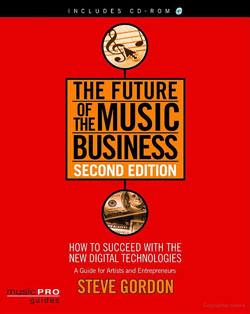
SG: What do you think of MySpace?
WC: I think it’s a real positive. And, it’s an interesting way to meet people and musicians. I’m getting a lot of hits from guys in Turkey, and guys in Israel, and guys in China who have hip hop music or have rock ‘n’ roll or have ambient music, and I would never hear of these musicians any other way had it not been for MySpace. It’s a nice place to link.
And, when you go on the road, for me it’s nice, because you can call some of these guys up, or some of these ladies up, and have them come sit in, or you can work on a record, and say, “Look, I’m in China for a month.
If you like what I do . . . you’re working on a new album. I’ve got four days off here. Let’s see if we can cut some tracks.” It’s a great, immediate connection.
SG: We all know about the bankruptcy and the closure of Tower Records. Do you think the closing of Tower will affect the indies like Half Note and your album?
WC: I think it will on a level. However, I think this is a new day; the artists will have to change hats. You can’t just be a guitar player or a bass player or a drummer any more. Unless you have some magnificent, unbelievable management team that’s just carving out your own scene.
I think it’s time. I mean, artists have to step up now, you really have to be on top of your numbers and your publishing, and higher records are being marketed—or at least have a team that’s doing it for you. So, it will have an effect on it, but on the other hand, it’s going to have to make us artists more responsible to get to our fans.
SG: Well you’ve been in both worlds. You’ve been with a major with Living Colour. I was there at Sony when Living Colour was in its heyday, and I’m sure they poured a lot of money into marketing and promotion. But, on the other hand, when you do it yourself you have more creative control. What is it like being independent versus being with a major; what are the big differences?
WC: With a major, Living Colour, it was fantastic in that we had people who gave a damn about the record. So, when we went to other territories, when we were in England or France or Germany or Switzerland, or on the American side, when we were in California, we were in St. Louis, you had all of these radio people and A&R people who came out to meet you at the airport, took you to the record store, took you by the radio station that was playing your single, and it was kind of this Pentagon kind of team that was pumping your record. Didn’t happen for everybody all the time, as you probably know.
SG: Yes.
